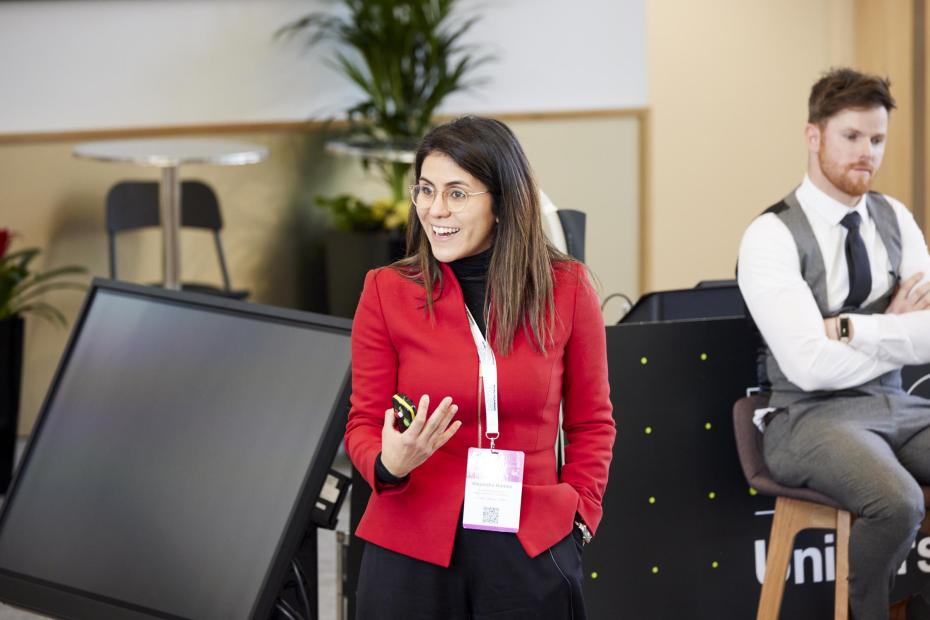
Are universities ready for Generation Alpha?

By 2028, just 3 years away, the first wave of these students will arrive on campus, more technologically fluent and digitally empowered than any before them. Born between 2010 and 2024 into a world saturated with smartphones, tablets, social media, and now artificial intelligence (AI), this generation does not simply use technology - it is woven into their identity. Immersed in digital environments, shaped by constant connectivity, on-demand experiences, and real-time access to knowledge from infancy.
According to McCrindle, the social researcher who coined the term Generation Alpha, no other generation has experienced such rapid technological evolution during their formative years. The pace of incoming and outgoing technologies in their lives - from the iPad to AI chatbots - has created a mindset that views technology not as a tool, but as an essential layer of life. Their experience during the pandemic, where online learning became the default, only intensified these traits. Generation Alpha is developing habits of self-direction, digital autonomy, and a baseline expectation that learning should always be accessible.
A generation that will redefine higher education
The arrival of Gen Alpha represents both a major opportunity and a serious challenge for universities. With one in two Gen Alphas expected to obtain a university degree, their impact will be substantial and long-lasting. However, their expectations of the university experience and their relationship to learning itself are different from anything the sector has encountered before.
Research conducted by AppsAnywhere, surveying more than 2,400 UK students aged 12–16, found that devices are more than just gadgets - they are extensions of themselves and their primary interfaces for communication, entertainment, and learning. Understanding their patterns of device access, ownership, and usage will be fundamental to higher education planning.
Key findings
1. AI is already mainstream for them: 65% are using or planning to use AI-powered tools
2. 84% of Gen Alphas own a smartphone, yet 26% don’t have regular access to a laptop or tablet
3. 76% can code or want to learn, with many already self-taught
4. 92% expect universities to provide devices to borrow, use, or own
5. Only 18% think courses should be only on campus, hybrid or remote models are the preferred
Many own smartphones (84%), but a significant portion still lack laptops or tablets at home (30%), and 92% will expect universities to provide or loan devices for learning, making institutional device provision and equitable access essential.
Perhaps the clearest shift with Gen Alpha is their preference for flexibility and autonomy. With over half (56%) preferring hybrid learning models and a significant number open to fully remote learning, institutions must rethink their delivery strategies. However, despite their need for online and offline learning, they are acutely aware of the negative impacts of being online, particularly concerning cyber bullying (45%), privacy (43%), and hacking (36%).
Excitement for AI’s life-enriching possibilities is the dominant sentiment among Gen Alpha. A substantial number of Gen Alpha’s (65%) are either already using AI-powered devices, apps, or websites (34%) or intend to do so in the next six months (31%). This rapid adoption rate indicates that universities will be welcoming students who are already familiar with and potentially reliant on AI technologies, requiring a fundamental rethinking of curriculum and skill development.
Staff training on AI is paramount. IT and academic staff will require ongoing professional development to understand AI’s implications for teaching, learning, and technical support. This is a challenging area for the sector, compounded by financial constraints and recruitment difficulties. Yet, without upskilling staff, institutions risk falling behind as AI becomes integral to the educational experience.
Finally, this generation does not view education as a place - they see it as a service. They expect to interact with it on their terms: asynchronously, across platforms, and with a degree of personalisation shaped by their own pace and preferences to learn in their own way. It implies that institutions will need to think more about creating experiences and how this will translate online and offline.
Technology as a foundation, not a feature
Universities must now confront a central reality. For Generation Alpha, technology is not optional. It underpins how they communicate, learn, and understand the world. What might have been considered enhancements a decade ago - high-speed Wi-Fi, mobile learning access, or smart campus tools - are now baseline, standard expectations.
Institutions can no longer afford to treat IT as a support function. It must be seen as a strategic pillar of student experience, and a driver of equity, inclusion, and innovation. The implication is clear:
- Mobile-first - platforms and digital systems that work across devices, anytime, anywhere.
- BYOD - comprehensive BYOD support with equitable access to devices and networks.
- Smart campus design - with collaborative digital spaces, seamless connectivity and safe and secure environments.
- AI integration - not as a novelty, but as a core part of learning, research, and operations.
- Upskilling of faculty and staff - to ensure digital tools and digital content are embedded in pedagogy - not just policy.
A moment to lead, not react
The good news? Generation Alpha still believes in higher education, with 75% intending to go to university. They value it as a gateway to success - but their trust is conditional. It depends on whether universities can demonstrate relevance, responsiveness, and the ability to evolve with them.
For institutional leaders - particularly those in IT and digital transformation - this is a rare strategic moment. The systems, policies, and investments made today will directly shape whether these learners see universities as prepared, progressive partners or outdated institutions struggling to catch up.
Now is the time to lead with purpose and build an educational experience with digital resilience and creativity that’s ready for this truly tech native cohort.
Read the full findings in this report - Generation Alpha – Coming to a University Near You.

